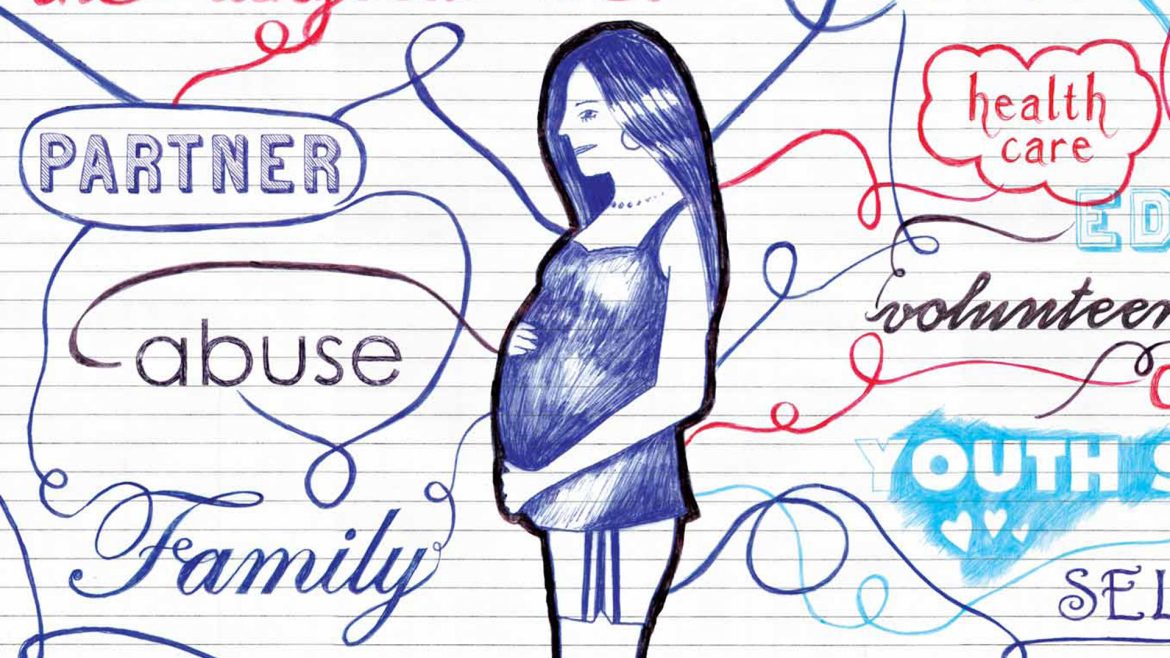By Iyemah David
Approximately 15 per cent of young Nigerian women aged 15-19 have experienced pregnancy, according to the latest Nigeria Demographic and Health Survey (NDHS) 2023-24.
The NDHS report, released on Monday in Abuja, reveals a teenage pregnancy rate of 15 per cent among girls aged 15-19 across the nation.
The report described the situation as a pressing national health issue requiring urgent intervention.
It said that the rates were significantly higher in rural areas, particularly in the North West and North East regions.
It described the risks linked to teenage pregnancy, including maternal health complications, loss of educational opportunities, and increased poverty cycles.
It further indicated that 11 per cent of these young women had already given birth, with four per cent currently pregnant and two per cent experiencing pregnancy loss, reflecting potential gaps in healthcare access and support.
Addressing the socioeconomic and educational impacts, the report said that teenage pregnancy rates were notably higher among girls from lower wealth quintiles and with limited educational attainment.
It explained that poverty and restricted opportunities contributed to problem.
Meanwhile, Prof. Muhammad Ali Pate, Minister of Health and Social Welfare, highlighted current policies and initiatives aimed at curbing teenage pregnancy, such as sexual and reproductive health education, access to contraceptives, and youth support programmes.
Dr Aminu Magashi, Coordinator of the Africa Health Budget Network (AHBN), stressed the importance of expanding initiatives focused on education, healthcare access, and community support to reduce teenage pregnancy and improve reproductive health among adolescents.
“Comprehensive sexuality education is one of the most effective tools we have.
“By providing teenagers with accurate information on reproductive health, contraception, and healthy relationships, we empower them to make informed decisions,” Magashi said.
He further said that state governments were implementing programmes to make contraceptives, including long-acting reversible contraceptives (LARCs), accessible, especially in rural areas where teenage pregnancy rates remain high.
He explained the need for youth-friendly health services and training providers to offer non-judgmental care, as many teenagers still faced stigma when seeking contraceptives.
Mrs Chika Offor, Executive Director of the Vaccine Network for Disease Control, said that technology such as telemedicine and digital platforms also played a role by providing discreet access to information and resources.
“These platforms offer teenagers a safe way to learn about reproductive health without fear of judgment,” Offor said.
As Nigeria bolsters these efforts through policies and partnerships, Offor expressed hope that comprehensive support would foster healthier, empowered adolescents, thereby reducing teenage pregnancy rates and improving reproductive health outcomes.
Ms Maureen Okoh, a journalist, called for comprehensive, community-based programmes that emphasise the importance of reproductive health education and support for adolescents.
Okoh highlighted the role of parents, educators, and policymakers in creating an environment that prioritises the health and future of Nigeria’s young women.




